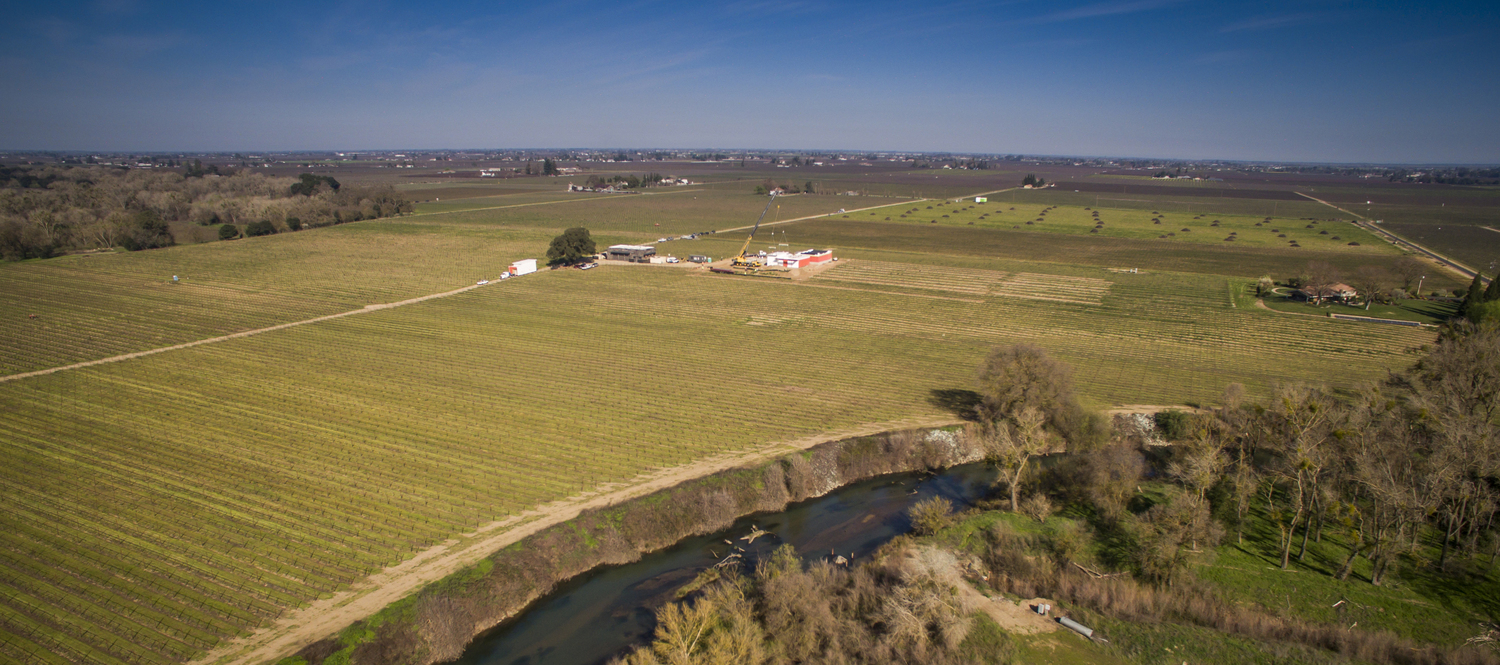
As Earth Day approaches, we’re reminded how closely people and the planet are entwined. Everything we do—or don’t do—can impact the environment, either positively or negatively. From the beginning, we’ve made sustainable choices for River Vine, carefully selecting recyclable materials and responsible products, using clean renewable energy to make River Vine a Zero Net Energy home and taking every opportunity to integrate the site, the building and the local ecosystem for their collective well-being.
Creating and maintaining a sustainable site has been a priority throughout the project. Not only is a sustainable site essential to River Vine’s LEED Platinum certification, it preserves the biodiversity to sustain the natural systems, minimizes River Vine’s drain on the local infrastructure and reduces the building’s environmental footprint—all integral to achieving our sustainability goals.
Low-Impact Development
Because the River Vine modules were factory-built and delivered largely complete, onsite construction has caused very little waste or disruption of the natural habitat. Creating designated staging areas and restricting heavy equipment to a contained work area protects wildlife as well as the vineyard, allowing grape growing and harvesting to continue undisturbed throughout site prep and development.
Minimal Construction Pollution
Using our proprietary fuel-efficient transport system and our own trained site crews allows us to control transportation impact and ensure that all debris is promptly removed from the River Vine site. As onsite construction ramps up, designated parking and trash collection areas will curtail construction pollution, shielding the existing vegetation and water bodies from harm.
Natural Landscaping
Sited within a working vineyard, River Vine is surrounded by a natural greenscape, with acres of open space and woodland remaining untouched. Instead of a water-dependent lawn, we’ll plant beds of low-maintenance native grasses and drought-tolerant greenery, complemented by an infinity pool to soften the hardscaping. Organic fertilizers, natural herbicides/pesticides and safe, biodegradable cleaning solutions will be used to protect the ecosystem and water table.
Stormwater Management
River Vine is designed to conserve and manage its water use, reducing and directing run-off to prevent stormwater contamination and downstream erosion that can carry urban pollutants into the nearby river. River Vine’s low slope roof accommodates rainwater collection, allowing us to divert and recycle rainwater to irrigate landscaping. A stone paver system will limit run-off and filter pollutants to protect water quality. Strategically-located permeable plantings will allow stormwater to penetrate into the soil, helping maintain the natural hydrologic cycle.



